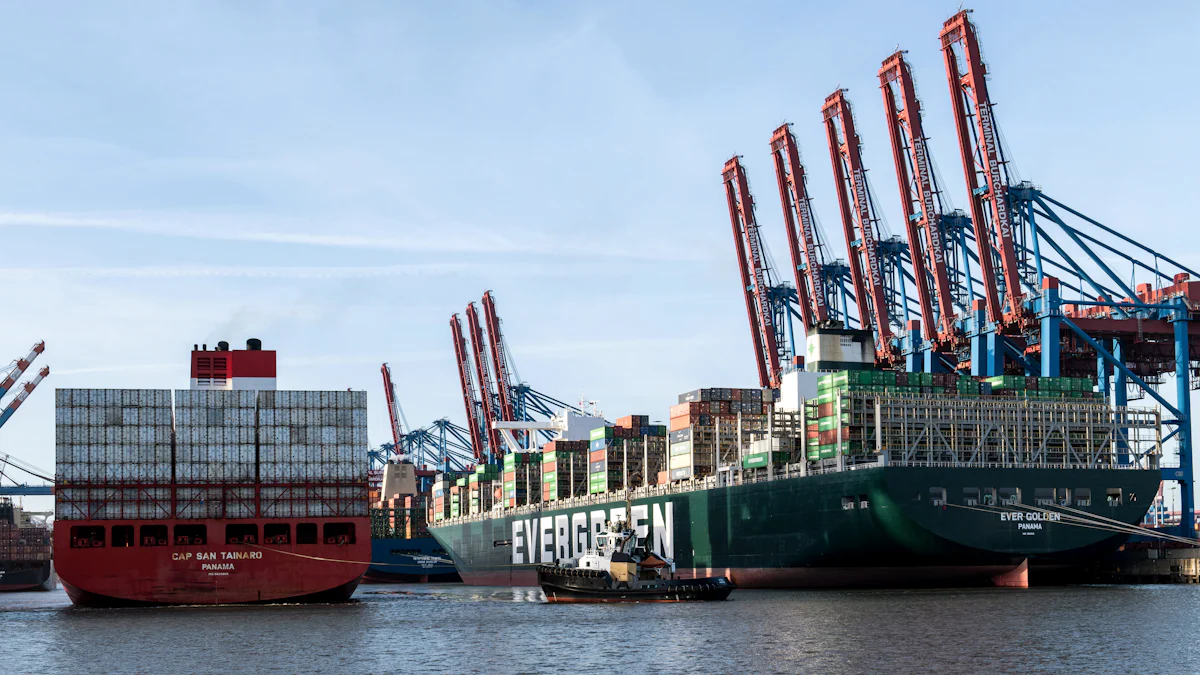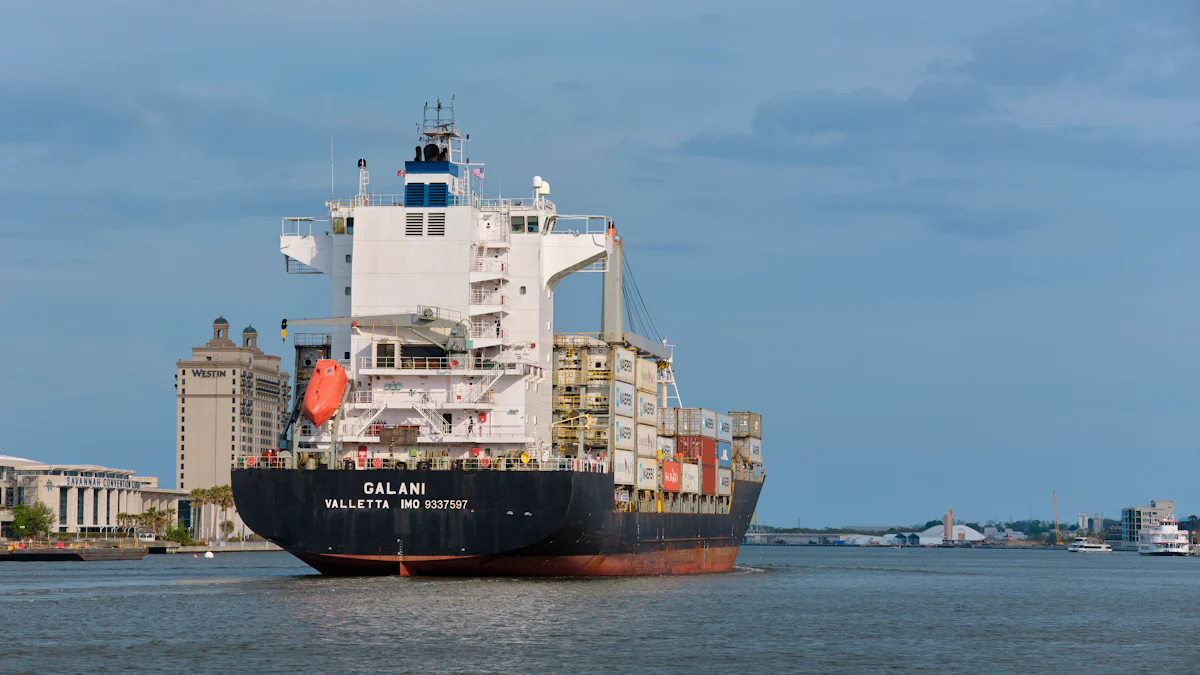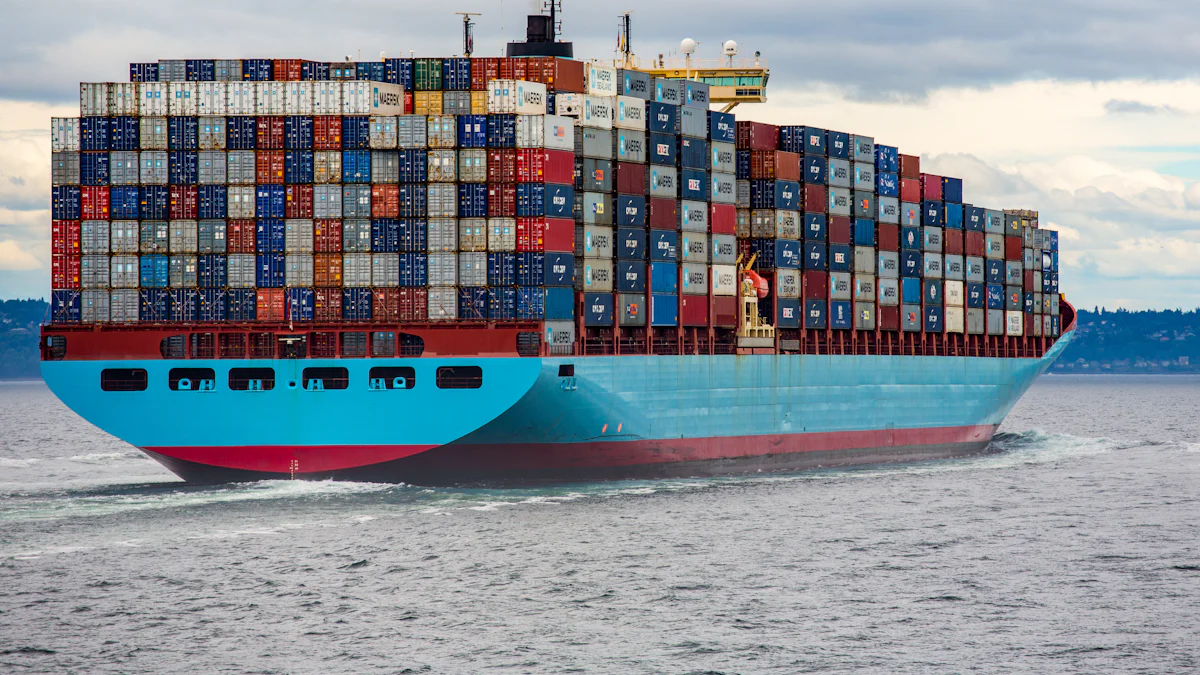Strategies for Improving Ocean Shipping Operations

Enhancing ocean shipping operations holds immense significance for both economic growth and environmental sustainability. You can witness a potential 10%-24% increase in operational efficiency through strategic improvements. The maritime industry faces challenges like air pollution from nitrogen oxide, particulate matter, and sulfur oxide emissions. Innovative strategies can address these issues, leading to reduced costs and carbon emissions. By optimizing ship design and operations, you contribute to a cleaner environment and a more efficient maritime trade network. Embracing these advancements ensures a sustainable future for the maritime industry.
Key Takeaways
Enhancing operational efficiency in ocean shipping can lead to a 10%-24% increase in performance, benefiting both the economy and the environment.
Optimizing ship design and propulsion systems is crucial for improving fuel efficiency and reducing emissions, contributing to a cleaner maritime industry.
Adopting alternative fuels like LNG and biofuels can significantly lower greenhouse gas emissions and align with stricter environmental regulations.
Utilizing data analytics for predictive maintenance and route optimization can enhance vessel performance and minimize operational costs.
JUSDA's China-Europe Express Rail offers a cost-effective and environmentally friendly logistics solution, improving connectivity and reducing transit times.
Staying informed about international regulations is essential for compliance and to support the global effort in reducing shipping emissions.
Embracing innovative technologies and strategic partnerships can help overcome operational challenges and enhance the sustainability of maritime operations.
Understanding Operational Efficiency in Ocean Shipping

Defining Operational Efficiency
Operational efficiency in ocean shipping refers to the ability to maximize output while minimizing input. It involves using resources effectively to achieve the best possible results. In the maritime industry, this means optimizing ship operations to ensure timely deliveries and reduce costs.
Key Metrics and Indicators
Several key metrics help you measure operational efficiency in ocean shipping. One crucial metric is the On-Time Delivery Rate, which measures the percentage of shipments delivered on or before the promised delivery date. High rates indicate an efficient shipping process and reliable service. Another important indicator is fuel consumption per nautical mile, which reflects how well a ship uses its fuel resources. Efficient ships consume less fuel, reducing costs and environmental impact.
Importance in Global Trade
Operational efficiency plays a vital role in global trade. Efficient shipping operations ensure that goods reach their destinations on time, supporting the smooth flow of international commerce. This reliability strengthens trade relationships and enhances the competitiveness of shipping companies. By improving efficiency, you contribute to a more robust and interconnected global trade network.
Significance of Improving Efficiency
Improving operational efficiency in ocean shipping offers numerous benefits. It not only boosts economic performance but also supports environmental sustainability.
Economic Benefits
Enhancing efficiency leads to significant economic advantages. By optimizing ship design and operations, you can reduce fuel consumption and maintenance costs. This optimization results in lower operational expenses and increased profitability. Additionally, efficient shipping operations improve capacity utilization, allowing you to transport more goods with fewer resources. This increased capacity utilization maximizes revenue potential and strengthens your competitive position in the maritime industry.
Environmental Impact
Improving efficiency also has a positive impact on the environment. By reducing fuel consumption, you decrease greenhouse gas emissions and minimize the carbon footprint of maritime operations. This reduction contributes to cleaner air and a healthier planet. Furthermore, efficient shipping practices help conserve natural resources and protect marine ecosystems. By embracing operational optimization, you play a crucial role in promoting sustainable practices within the maritime industry.
Strategies for Enhancing Ocean Shipping Operations
Enhancing ocean shipping operations requires a focus on ship fuel efficiency and energy efficiency. By implementing innovative strategies, you can achieve significant improvements in vessel performance and contribute to the decarbonisation of the maritime industry.
Optimizing Ship Design for Ship Fuel Efficiency
1. Hull Design Innovations
Hull design plays a crucial role in improving fuel efficiency. By reducing drag, you can enhance vessel performance and lower fuel consumption. Advanced hull coatings and streamlined shapes minimize resistance, allowing ships to glide more smoothly through water. This optimization not only boosts energy efficiency but also supports decarbonisation efforts by reducing emissions.
2. Propulsion System Improvements
Improving propulsion systems is essential for enhancing ship fuel efficiency. Modern propulsion technologies, such as advanced propellers and engines, offer better energy conversion and reduced fuel usage. By upgrading propulsion systems, you can achieve significant gains in vessel performance and contribute to a cleaner maritime environment.
Adopting Alternative Fuels for Improving Fuel Efficiency
Liquefied Natural Gas (LNG) and biofuels present viable options for improving fuel efficiency. These alternative fuels produce fewer emissions compared to traditional marine fuels. By adopting LNG and biofuels, you can enhance energy efficiency and support decarbonisation goals. This transition not only benefits the environment but also aligns with stricter regulatory requirements.
2. Hydrogen and Electric Propulsion
Hydrogen and electric propulsion systems represent the future of maritime energy solutions. These technologies offer zero-emission alternatives, significantly reducing the carbon footprint of ocean shipping. By investing in hydrogen and electric propulsion, you can lead the way in sustainable shipping practices and improve overall vessel performance.
Utilizing Data Analytics in Ocean Shipping
1. Predictive Maintenance
Predictive maintenance leverages data analytics to monitor ship systems and predict potential failures. By identifying issues before they escalate, you can optimize maintenance schedules and reduce downtime. This proactive approach enhances energy efficiency and ensures smooth operations, contributing to improved vessel performance.
2. Route Optimization
Voyage optimisation through data analytics allows you to select the most efficient routes, minimizing fuel consumption and emissions. By analyzing weather patterns, currents, and traffic, you can make informed decisions that enhance energy efficiency. This strategy not only improves fuel efficiency but also supports decarbonisation efforts by reducing the environmental impact of shipping operations.
JUSDA's Role in Operational Efficiency
JUSDA plays a pivotal role in enhancing operational efficiency within the maritime industry. By integrating innovative solutions like the China-Europe Express Rail, you can significantly improve logistics and supply chain management. This service offers a faster alternative to traditional ocean shipping, bridging the gap between speed and cost-effectiveness.
Integration of China-Europe Express Rail
Enhanced Connectivity
The China-Europe Express Rail connects major economic hubs across continents. This connectivity allows you to transport goods efficiently, reducing transit times compared to sea freight. With a delivery time of 15-20 days, this rail service provides a reliable option for businesses seeking timely deliveries.
Cost-Effective Solution
You benefit from a cost-effective logistics solution with the China-Europe Express Rail. It offers a balance between the high costs of air freight and the slower pace of ocean shipping. By choosing this service, you can optimize your logistics expenses while maintaining efficient operations.
Environmental Benefits
The rail service contributes to environmental sustainability by reducing carbon emissions. Compared to traditional shipping methods, it offers a greener alternative, aligning with the industry's goals for reduced environmental impact. By adopting this service, you support cleaner and more sustainable shipping practices.
Seamless Integration
JUSDA ensures seamless integration of the China-Europe Express Rail into your existing supply chain. The service leverages advanced technologies for real-time tracking and inventory management, enhancing transparency and decision-making. This integration streamlines operations and improves overall efficiency.
By utilizing the China-Europe Express Rail, you can achieve significant improvements in operational efficiency. This service not only enhances connectivity and cost-effectiveness but also supports environmental sustainability. JUSDA's commitment to innovation and efficiency positions it as a leader in the global logistics industry.
Overcoming Operational Challenges

Navigating the complexities of ocean shipping requires addressing both regulatory and technological hurdles. These challenges can impact the efficiency and sustainability of maritime operations. By understanding and overcoming these obstacles, you can enhance your decarbonisation journey and contribute to a more sustainable maritime industry.
Regulatory and Compliance Issues
Navigating International Regulations
International regulations play a crucial role in shaping the maritime industry. You must stay informed about these regulations to ensure compliance and avoid potential penalties. The International Maritime Organization (IMO) sets standards to reduce greenhouse gas emissions and promote sustainability. By adhering to these guidelines, you can contribute to the global effort to minimize shipping emissions and enhance the efficiency of your operations.
Ensuring Environmental Compliance
Environmental compliance is essential for reducing the environmental impact of maritime operations. You need to implement strategies that align with international standards for reducing GHG emissions. This includes adopting cleaner fuels and optimizing ship design to lower emissions. By focusing on environmental compliance, you support the decarbonisation journey and promote a healthier planet.
Technological Integration
Challenges in Adopting New Technologies
Integrating new technologies into maritime operations presents several challenges. You may face difficulties in adapting existing systems to accommodate advanced solutions. Additionally, the initial investment required for technology upgrades can be substantial. Despite these challenges, embracing innovation is crucial for improving efficiency and reducing GHG emissions.
Solutions for Seamless Integration
To overcome technological challenges, you should focus on collaboration and strategic planning. Partnering with industry leaders like JUSDA can provide access to cutting-edge solutions and expertise. JUSDA's integration of AI and IoT enhances real-time tracking and coordination, ensuring efficient operations. By leveraging these technologies, you can streamline your supply chain and improve voyage efficiency.
"JUSDA enhances the China-Europe Railway's efficiency through seamless customs operations and real-time tracking, ensuring reliable delivery of goods."
By addressing regulatory and technological challenges, you can enhance the efficiency of your maritime operations. This proactive approach supports the decarbonisation journey and contributes to a more sustainable maritime industry.
To improve ocean shipping operations, you should focus on several key strategies. First, optimize ship design and propulsion systems to enhance fuel efficiency. Second, adopt alternative fuels like LNG and biofuels to reduce emissions. Third, leverage data analytics for predictive maintenance and route optimization. Implementing these strategies can lead to significant long-term benefits. You will see reduced operational costs, increased profitability, and a positive environmental impact. By embracing these advancements, you contribute to a more sustainable maritime industry, aligning with international regulations like MARPOL and SOLAS.
See Also
Discover 5 Cutting-Edge Techniques for Supply Chain Efficiency
Exploring the Latest Trends in Sea Freight Logistics 2024
Essential Strategies for Successful Supply Chain Optimization
Transforming Logistics with AI: The Future of Supply Chains
Effective Strategies to Tackle Supply Chain Challenges in Tech
